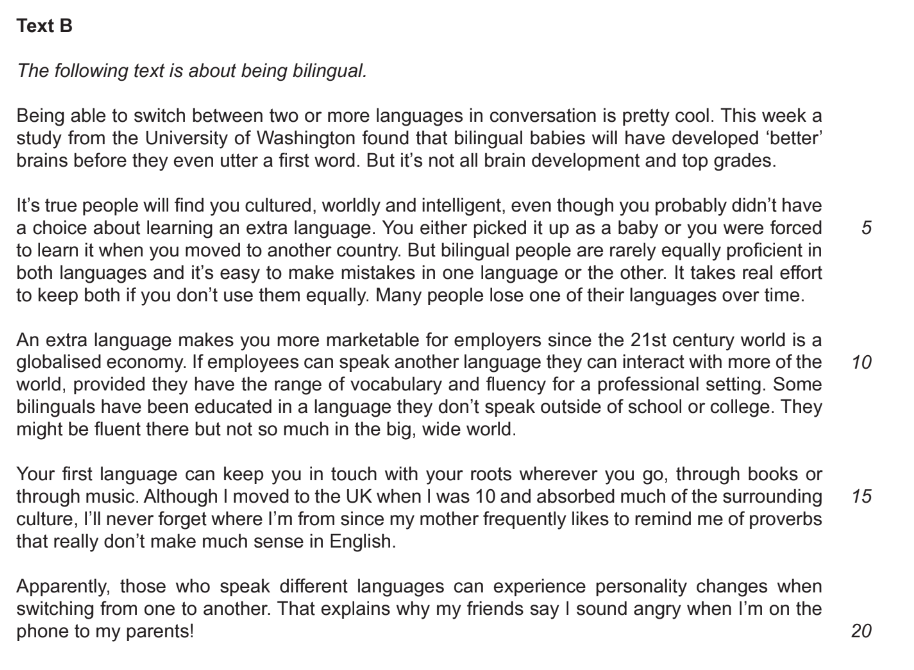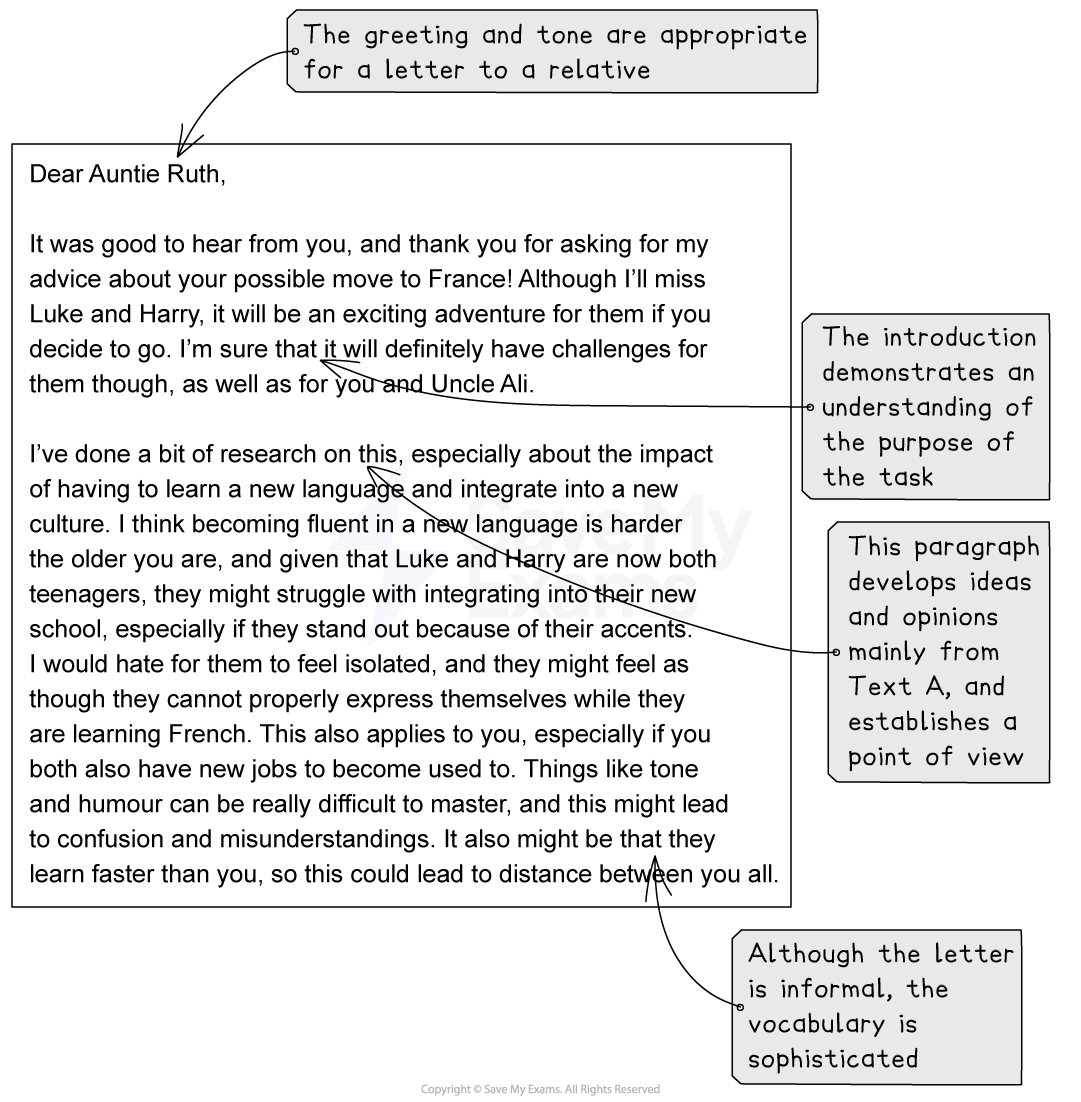|
Dear Auntie Ruth,
It was good to hear from you, and thank you for asking for my advice about your possible move to France! Although I’ll miss Luke and Harry, it will be an exciting adventure for them if you decide to go. I’m sure that it will definitely have challenges for them though, as well as for you and Uncle Ali.
I’ve done a bit of research on this, especially about the impact of having to learn a new language and integrate into a new culture. I think becoming fluent in a new language is harder the older you are, and given that Luke and Harry are now both teenagers, they might struggle with integrating into their new school, especially if they stand out because of their accents. I would hate for them to feel isolated, and they might feel as though they cannot properly express themselves while they are learning French. This also applies to you, especially if you both also have new jobs to become used to. Things like tone and humour can be really difficult to master, and this might lead to confusion and misunderstandings. It also might be that they learn faster than you, so this could lead to distance between you all.
I think there is no doubt that being able to communicate in more than one language definitely has its benefits. I would imagine that it can help us see the world from different perspectives, and being able to speak a second language well would be a really great employability skill, especially for Luke and Harry, if they are able to switch the contexts in which they are able to communicate fluently. Flexing your brains to learn a second language would also be good for you in the future; in fact, I think I read that being bilingual can help prevent dementia later in life.
However, for most people, becoming bilingual is not necessarily a choice, and that can make it harder. I think bilingual people are not often completely proficient in both languages, and therefore it is easy to make mistakes. Again, this might make you all feel more isolated or that you don’t completely fit in. More importantly for you, though, is that you might lose your links with your culture and way of life here. Even our first language can be lost if we are not speaking it regularly, so while you may think that being able to speak more than one language might make you more interesting, this might be at the expense of what makes you, you!
If you do decide to go, I hope the move will be successful for you all, but I am concerned that there will be more implications than just the actual process of learning a second language. It is amazing to go on a new adventure and experience life in another country, but this may lead to arguments and frustrations between you all. I know you will all give it 100 percent, but trying to learn to communicate fluently in French may result in you all being actually less articulate in both languages. If Luke and Harry had been younger, then they might have been able to adapt more quickly, but given their ages and the fact that learning new languages can change people’s personalities, I do not think this will be a good move for you all.
Whatever you decide, however, I wish you all the best!
Hope to speak to you soon,
Nadia
|







